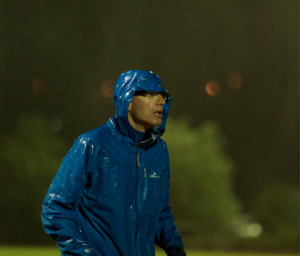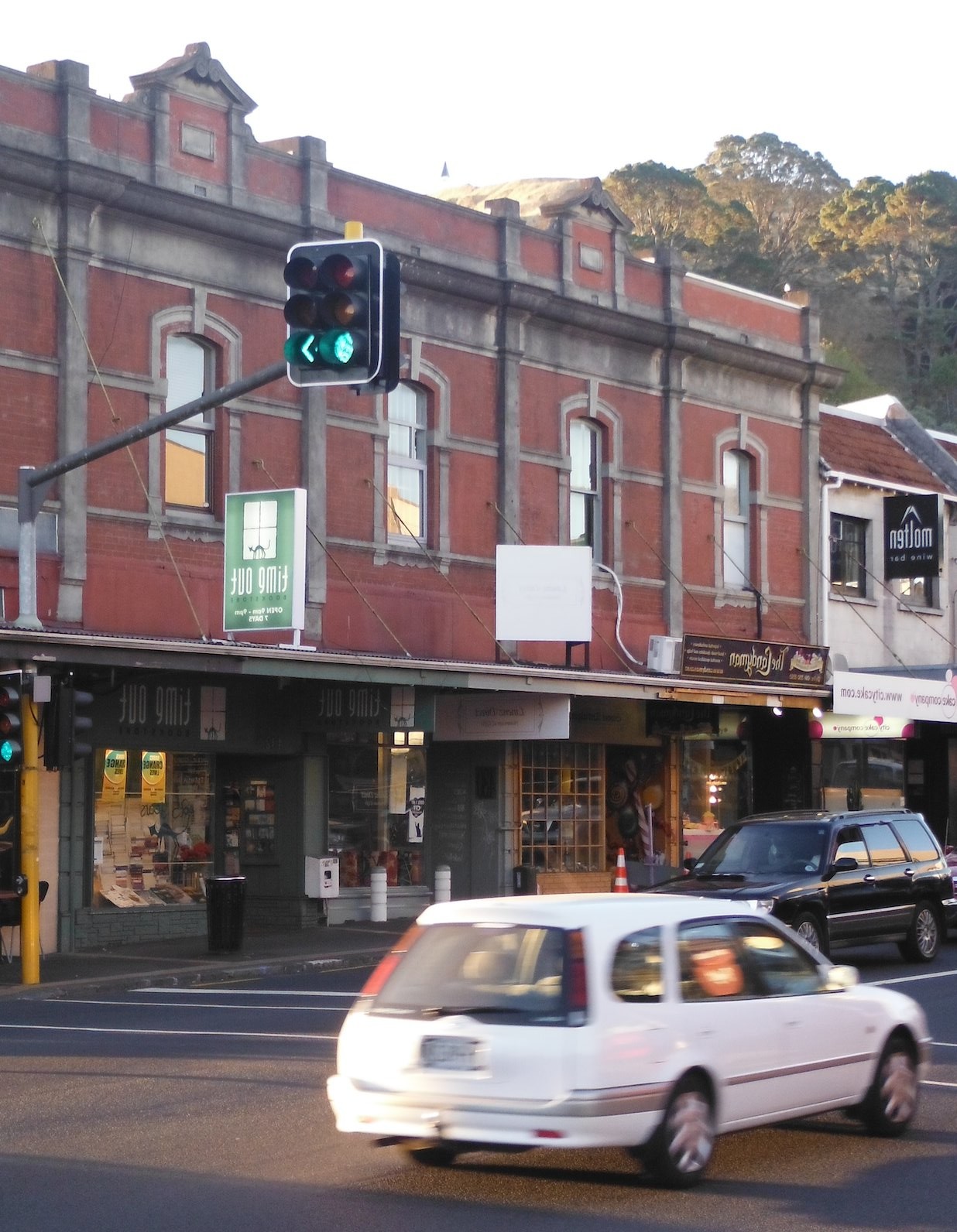An independent bookstore is a splendid place. The books may not cover an area equal to that of a football field, but they are many and they are varied and they are almost all extremely interesting. Not only are the books interesting, but it is likely that the workers are as well; that the person behind the counter may have actually read a book or two – an achievement not to be assumed in a chain store – and that they may, therefore, have some interesting suggestions or comments to make on matters concerning books.
I went into Time Out Books at the foot of Mount Eden to buy Scott Jurek’s book Eat and Run. I had bought a copy for myself earlier online – this one was for a Christmas present. Inevitably I spent a long time drifting round the shelves – here an interesting book on ecologically sustainable interior design, there a tale of an anthropomorphic platypus. Eventually I circled round to the small sports section, which, inevitably, had Scott Jurek’s book and Christopher McDougall’s book and a handful of other provoking and stimulating books and no dull, ghost-written autobiographies of national team captains or coaches.
I took the book to the counter. “Are you planning on running an ultra-marathon?” the young woman behind the counter asked.
“Well …” I mumbled hesitantly, “I have run a few already, actually.” Her face lit up, her eyes grew round, she practically jumped up and down with excitement. “How far?” Now, I am not one to talk to strangers and I am not one to talk about myself even to people I know, but I had already gone this far, so I recklessly plunged on.
Well, the longest race I’ve run … I did … 830 kilometres.
If I had been buying The Brothers Grimm and had casually mentioned that I was myself actually a unicorn, the effect would not have been much different.
She was, she said, fascinated by ultra-marathoning. She had herself run one half-marathon, and when I said that that was a fine achievement, she dismissed it as pathetic and of no account.
The interrogation began. Several times she said, “I’ll let you go, but just one more question …” Her questions went on, tending ever more to the more metaphysical: How long did I train each day … had I collapsed … did I get injuries … did I cry (only once) … had I read Haruki Murakami’s book (in fact, she managed, in the middle of our conversation, to sell me the book) … was I happy?
This last question intrigued her most. When I admitted that I was often quite irascible when running long distances, she wanted to know if this was compatible with my claim to be happy.
I was reminded of the most recent ultra-marathon in which I had competed– the New Zealand 24-hour National Championship–the sixty-ninth ultra-marathon of my running career.
The race was held at Sovereign Stadium. It had been held at this location for the previous fourteen years. It is a notoriously exposed spot, and this particular early spring day the wind was pounding around the hills in just such a manner as to blast directly up one side of the 400-metre track. There were times when it was extremely difficult to make headway against that wind.
The rain was not constant but it was heavy and cold and it was definitely wet. This year the conditions were unanimously judged to be the worst that the runners had ever had to endure.
I was circling the track at 1 a.m. The spectators had mostly gone; even a certain percentage of the competitors had disappeared into the welcoming comfort of downy sleeping bags in dry tents trackside – the “graveyard shift” they call it.
There was one soul still braving the elements alongside the slowly moving runners – a photographer, unobtrusively about his business in the dark. He spoke to me briefly. It turned out that earlier in the year, I had had a conversation with him …
… in the middle of another dark and rainy night in the depths of an ultra-marathon–the gruesome Northburn 100 (“You don’t race it, you survive it.”)– high on a barren, wind-blasted hilltop in the wastelands of Central Otago, at midnight, before the snow set in.
“I never forget a face,” he said – a result of being a photographer, I guessed.
His name was Paul Petch. Some time after the race he posted on his website the photographs he had taken that night. I was impressed by the artistry of them. These were not the standard dreary snaps; these were evocative works of art, each one. Mostly black and white, the pictures captured the certain bleakness of the “graveyard shift.” And yet – and yet, they hinted also at something deeper.

Dhiraja during the graveyard shift
There was one image he had captioned: “Wet. Cold. Suffering. Happy.”In that one image, and in the caption that described it, he had captured the paradox of the ultra-runner’s path. In the mundane world, those four words do not – cannot – belong together.
And yet to the ultra-runner, that paradox is central to his or her experience. I am cold; I am wet; I am suffering; I want to stop; I want to go home; I do not want to stop; I am happy.
I have now read Haruki Murakami’s book on running – What I Talk About When I Talk About Running. I told the woman in the bookshop that I would come back and complain to her if I didn’t enjoy it. I did enjoy it. It is a strange little book – quiet and gentle. Murakami – who “ranks among the world’s greatest novelists” – writes in that book:
“Either way, when I look back on that race now I can see that it had a lot of meaning for me as a runner. I don’t know what sort of general significance running sixty-two miles by yourself has, but as an action that deviates from the ordinary yet doesn’t violate basic values, you’d expect it to afford you a special sort of self-awareness. It should add a few new elements to your inventory in understanding who you are. And as a result, your view of your life, its colours and shape, should be transformed. More or less, for better or for worse, this happened to me and I was transformed.
… when I reached the finish line in Tokorocho, I felt very happy … for the first time in half a day I sat down and wiped off my sweat, drank some water, tugged off my shoes, and, as the sun went down, carefully stretched my ankles. At this point a new feeling started to well up in me – nothing as profound as a feeling of pride, but at least a certain sense of completion. A personal feeling of happiness and relief that I had accepted something risky and still had the strength to endure it.”
If I do go back to Time Out Books – and the design book did look particularly interesting – I will reiterate to the woman behind the counter, after I have thanked her for recommending Murakami’s book: “Yes, it is possible, I am happy – Wet. Cold. Suffering. Happy.”

